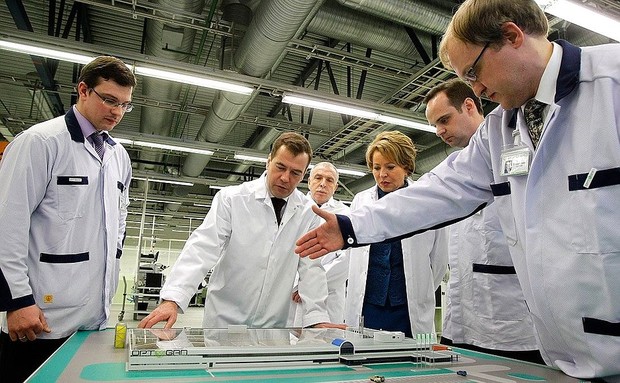Loren Gharam: Russian science is hardly able to commercialise its breakthroughs
An American historian of science and an expert on Russia gives his opinion on Russia's scientific prospects
Poor protection of intellectual property, bad legal system and economic scene, and lack of investment are the main reasons why Russia is failing to commercialise its scientific brilliance, considers Loren Gharam, a noted American historian of science and an expert on Russia. According to the scientist, the state of things is unlikely to change under the current political order.
Russia is unique in its gap between its strong scientific history and its weak ability to commercialise scientific breakthroughs, says Cape and Islands citing Loren Graham, professor emeritus of the history of science at Massachusetts Institute of Technology and Harvard University. Soviet scientists launched the first artificial satellite in 1957, and in 1961, they became the first to get a human into space. The Soviet Union's representatives made important contributions to physics, mathematics, chemistry, biology and other areas.
Unfortunately, the whole system fell apart with the collapse of the Soviet Union. ''The brain drain in fields like physics and mathematics has been enormous, and if you go around to almost any physics department in a good university in the United States and look down the roster of the professors, you'll probably find a Russian or two," said Graham during his lecture at Marine Biological Laboratory in Massachusetts.
Nonetheless, Russian students still succeed in presenting themselves. For example, Russians have won first places in the IBM annual contest in computer programming for undergraduate students for the last eight years in a row, while Americans haven't won first prize in that contest since 1990.

Answering why Russia doesn't play a bigger role in computer hardware and software production, the expert named poor protection of intellectual property, a very bad legal system, lack of investors and an adverse economic situation among the main deterrents to the development. ''All these things come together,'' he said. Graham also mentioned the negative impact of political problems on the Russian science. ''I would say that the same kind of political order that's good for democracy, and human rights, and a healthy society, is good for science,'' he added. ''Can it change? Yes. And I'm convinced that in fact, it will change. But I'm not sure that I'll see it in my lifetime, and I'm positive we won't see it in Putin's lifetime.''
Russian scientists and researchers are isolated from the international community in many ways, said Nature earlier. Even when collaboration is officially welcomed, westerners often complain about the excessive control from the security services and customs authorities, claimed the international scientific journal.